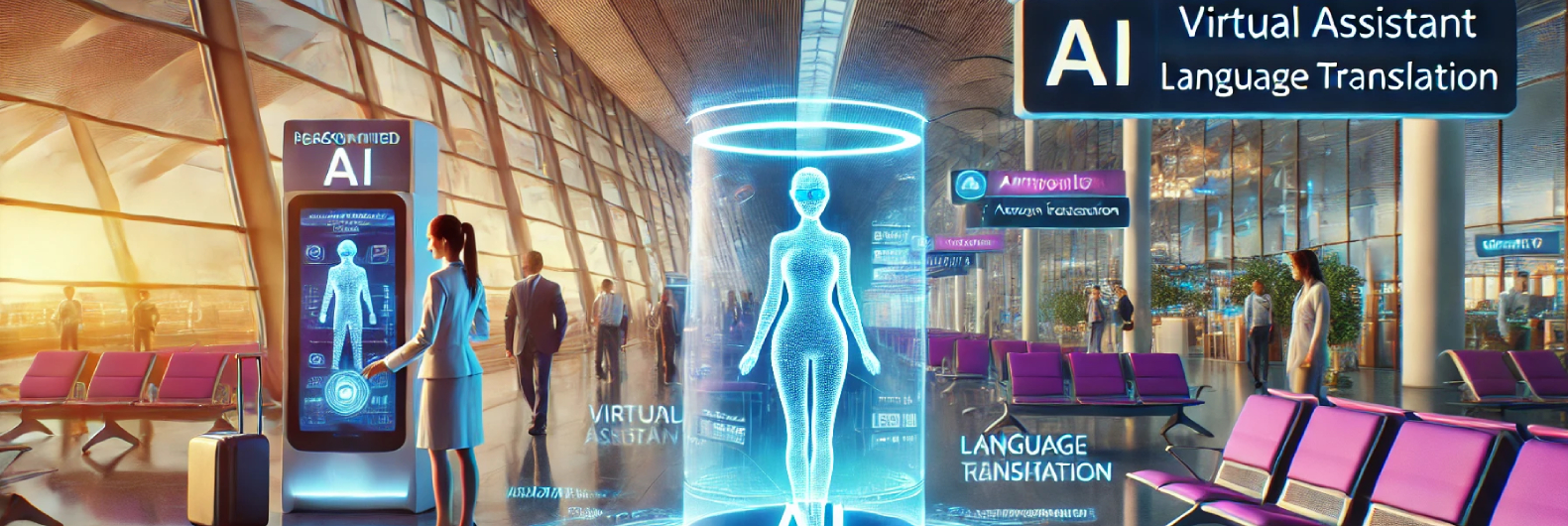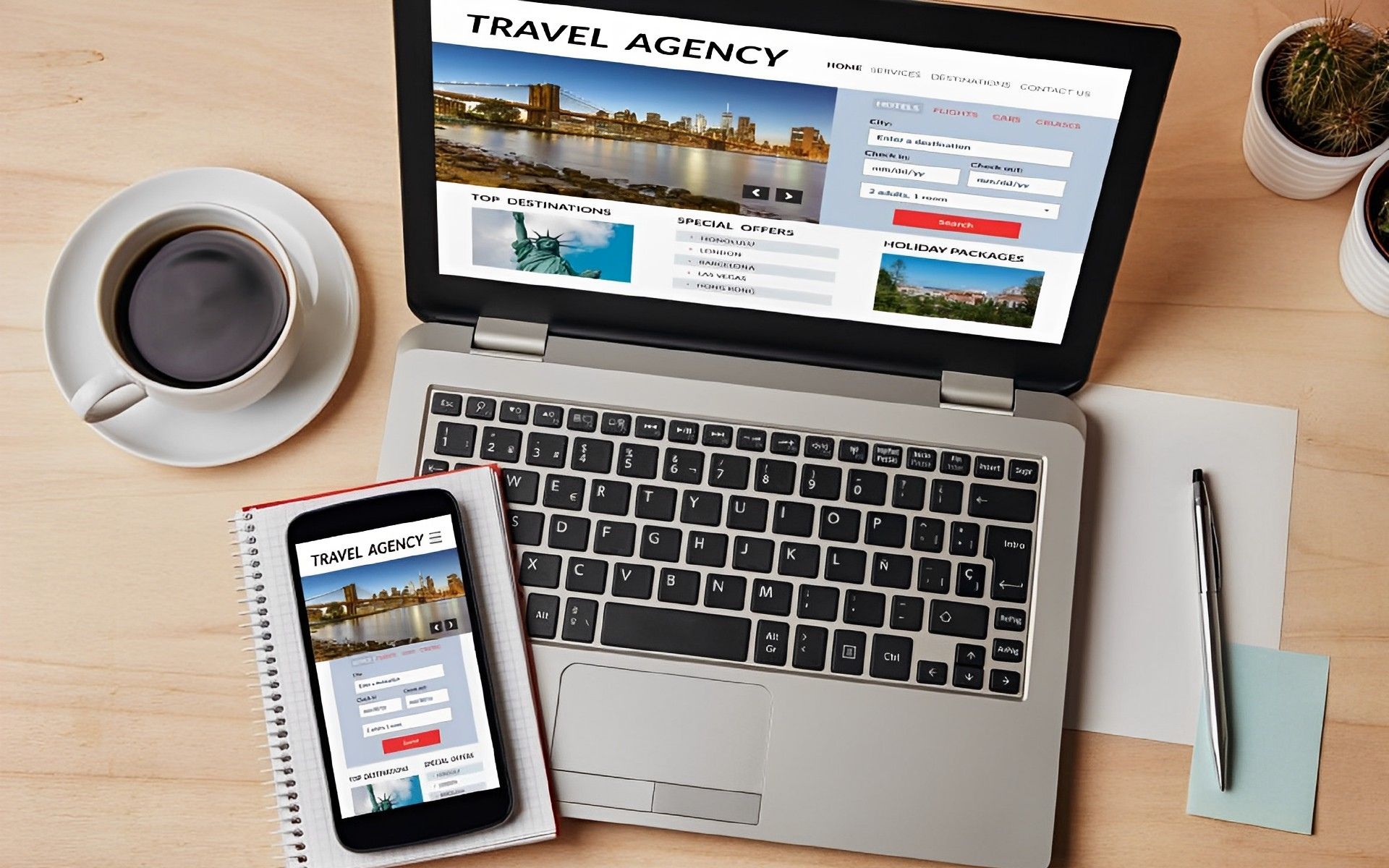You are running a very prosperous travel business locally and now want to move to the global level with your travel app development? The first thing in your mind is the cost of developing a travel app, and no means it is the wrong question. But there are questions which are more crucial and more in line first before it.
Here you should ask first:-
- What are your goals for the app?
- Needs of the customer that this app will resolve?
- Features you are looking for?
- What will be the criteria for measuring success?
These are better questions before asking the cost, why? By knowing the end-user goals and the needs to complete those goals, you can come to a point where value can be determined. The two core reasons for developing an app is how your customer is going to use it and secondly the ROI that your app should bring.
In this blog, we will go over the areas of app development that need focus for your brand new travel app. As a starting point, we will focus ourselves launching MVP (Minimum Viable Product) and the cost to launch that MVP. We will go over in-house development vs. outsourcing the project.
The thing to remember is that you are not in this for one-time development. You are developing a product in which consumers will interact, and that will need investment, both time & money, according to your customer needs.
Before getting to the cost of developing a travel app, what are the feature needs of the modern era’s travel app? The thing with technology is that it is ever-changing, and so the expectation of the customers from it. Giving them a fast booking travel booking is only one piece of the whole puzzle.
Travel brand as yours needs a few essential services which are to be included in your app: fast and reliable booking, status, paperless check-in. Mobile boarding passes. These have become the necessity of today’s travel app rather than add ons. TMCs (Travel Management Services) need messaging, and a self recreational activities list is essential apart from trip management itself.
When you focus on essential core functionalities like above, the app will grow with engagement, enhancing the brand presence, reducing service costs. When all this improves customer experience, the ROI will automatically increase. Once you see your MVP is successful, you can start adding add ons features to it to make it more appealing to consumers and stick them with your app rather than going elsewhere. Dividing your journey in MVP and later on adding features one by one is like not putting all eggs in one basket. You get time to choose where more profit lies when your core functionality oriented app is generating revenue for you.
Cost of developing a travel app depends entirely on the development route you take and maintaining it. There are generally three option:-
- In-house Development
- Outsourcing To an App Developer
- Outsourcing To a Travel Industry Specialist
Do note, in the long-run, cost should not be the core of development. Every method has it’s pros and cons while we will discuss next. Price varies on the expertise you need in-app or delivering the app, what you have planned the MVP is launched. Then comes deciding the cost.
In-house
Having an in-house team is beneficial, no doubt, but only if you have those investment capabilities. Creating a travel app makes the whole project three times more expensive than the outsources specialist. It needs investment, hefty investment.
Pros
The core advantage if an in-house team lies in the control you get over the processes. You fully know what your goals are with the project and for customer experience. No one is more qualified than you to make that understanding to your team. Things are communicated quicker when the whole team is at a single location.
Cons
Delivery: 40% of travel app owners said it takes 6 to 1 year for an in-house team to deliver the app compared to 3 months of an outsourced travel industry expert.
Procuring Team: App development requires expertise in the web app, mobile apps for iOS/Android. For each category, you have to find someone with the knowledge to handle the task. It makes the whole process costly as you have to salary them, provide equipment, hire office spaces for them to work. And those are three essential roles of app development. You need to hire QA(Quality Assurance) Engineer, Front & Back end developer, plus an HR to manage them all, minimum. For six months to 1 year, as said in 1 point.
Partnership & Integration: There are modules in the app development process that cannot be developed by an in-house team. For example, a single room is listed over multiple websites. A third party maintains a database, so you don’t have to worry about double booking. For this, you have to create a relationship with the database maintaining company, which takes time and effort. An outsourced specialist already has that and just needs to integrate without any delay.
Cost
$2 million
Sounds too much, are we exaggerating? No, when you consider things like office spaces, equipment like desktops, only one MacBook pro sets you behind a thousand dollars, you need to install paid software and services. High-speed internet services cost, electricity bill, furniture, etc. For at least six months to 1 year.
Above were nonliving things, then you have to add salaries, benefits, health insurance, etc. But even before that, you need to hire the right team, which is the game of trial and error. So until you find the right team, the cost of onboarding and firing comes in.
After that comes the cost of maintaining the app. You can’t just leave it once it is launched, you keep it running. So that’s why we are not exaggerating.
Outsource To App Developer
Pros
As an App Development company, they have spread their operations in every field. They have a knowledge base to develop apps of any kind. They are maintaining the whole team for you, so you don’t have to worry about hiring an in-house team. But as they are generic, and the travel and booking industry needs specialized knowledge of integrations. Like booking management, etc.
Cons
Not Familiar With Travel Industry APIs: Travel industry requires specialized knowledge of complex third party integration, one example is GDS (Global Distribution System), which ensures two people do not book one seat. These type APIs require a specialized knowledge base, which can only be achieved by experience. If APIs like a status check, tracking, payment doesn’t get appropriately integrated, things can go south very quickly, and you can lose your brand image.
Expertise: Generic business is like believing. When you believe in everything, you don’t believe in one thing completely. Same with generic app development companies. They may know developing apps, but they don’t have the expertise in developing any specific industry-oriented apps. Don’t get us wrong, and they will deliver a functional travel app for you but not an optimized specifically to travel business. You lose the competitive edge there and.
Delivery: When moving ahead of generic app development companies, they need time to understand APIs, how to integrate them to work correctly, discover things when they are developing your app and solve the issue by researching the solution. And when time is the essence, you can’t afford that headroom of researching. On the other hand, a Travel App Development Specialist company has seen all they know what has to be done as soon as they get your project and delivers in a shorter time. We are discussing them next.
Cost
Here the cost of developing a travel app depends on the features. The more intricate features you want, the more the price. But with an outsourced partner, you lose the 60% cost of what it takes to run an in-house team.
Outsource to a specialist mobile travel app developer
Globalization has created outsourcing so secure and reliable. There are so many options for outsourcing, but for the travel industry, it is very crucial to get specialized travel apps, development partners. The core benefit lies in the experience of theirs in the industry. As soon as you give them a job, they know what to do and how to do, reduces cost, and, more importantly, reduces the time for the development.
Pros
Expertise: They are experienced, how user flow works, how to create a design for capturing that flow.
Domain Understanding: They have worked in the travel domain for a long time; they all there is to know, they have partnered with all the major integrators. They know the problems that can come and are ready to deploy solutions for it. A travel development specialist knows what is in the market trend and knows how to separate nuances.
Speed of Delivery: As soon as you hand over the project, they have all the frameworks ready to deploy. They must be doing this for a long time, and they don’t need time to think, they just need time to integrate all the requirements for your dream project. So instead of 12 months, they only need 12 weeks or less.
Lower Risk: A specialized travel app development partner knows the workflows of travel app development; he/she must have engineers in place for each task there. They have tested and deployed their travel apps hundreds of times and know every issue there can be and solution ready for it.
Cons
With any outsourcing job, there is always a risk of losing confidential data. But due to global laws, that risk has been reduced to none. The simple solution to sign NDA, which keeps the organization and legally bound not to share any data of yours.
When the project is not in-house, you will not have 100% control over the processes, but you will have clear communication between the team and you, which in return gives you control over the project scope.
Cost
Again, the price for developing from an expert will depend on the feature set you need. But out of every option going with a specialist is always beneficial as they know what they have done as soon they get the project. Your ROI increases immensely this way. And as they are experts in the field of development, they can also help you grow your business with in-demand feature sets.
We know we said $2 million and it is a lot, by going with an outsources option you reduce that to 60 to 70%. But remaining is still a cost. But when you compare the market, you are going to lose without it, nothing that compares. We are a travel app development specialist and know that around 78% of travelers want to have an app rather than a traditional method for booking their travels. If you don’t do anything, you are losing 78% of potential customers.
Travel mobile apps are the most beneficial for your travel business. Here are some figures we can share from our experience in developing all of them for multiple clients of 12 years. People spend $120 for in-app travel purchases, compared to $100 at desktop and $90 on a mobile browser. With mobile, especially, you are getting more touchpoints with in-app notifications, updates, feedback loop, etc.
Cost is a very crucial factor in any project, whether app development or real-life project. But in our experience, customer satisfaction should be at the top with essential features and lastly to build them all, the cost of it. Focus on creating MVP first to validate your idea, then move on the add on features one by one. Get a digital strategist for the project itself to market it properly and create constant happy touchpoints with customers, so they come back whenever they plan to go somewhere.
Having an app development partner for your project is essential; you need someone who knows what they are doing and has done it with backing up experience.
Eminence Technology is a 12-year-old Travel App Development Specialist. We have the experience that creates world-class travel websites and apps. If you have read all this far, that says you are serious about your travel business.














